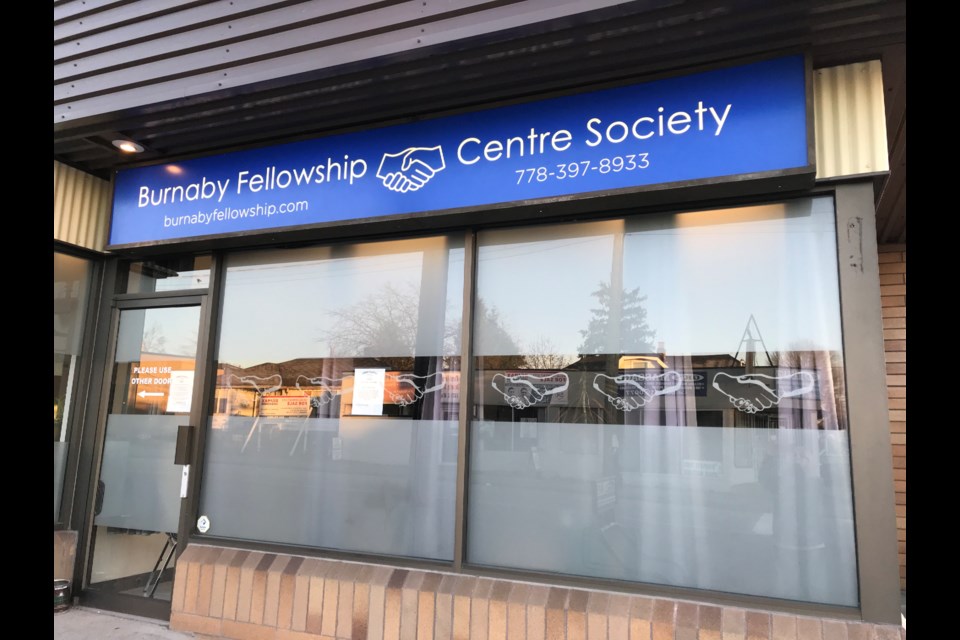An organization that serves as a pillar of Burnaby’s recovery community is waiting on crucial provincial funding to keep its doors open.
The Burnaby Fellowship Centre has, for the past 40 years, hosted meetings and church services to support those seeking recovery from alcoholism and addiction. For the last 30 years or so, the non-profit has received a $40,000 community gaming grant from the province to pay for the centre’s rent and utilities. Last year, though, the routine funding request was denied and despite a request for reconsideration the organization has just one month of savings to keep afloat.
Barb Fullerton, a member of the board and the fellowship’s treasurer, was left wondering what changed in the guidelines for the funding.
“The Burnaby Fellowship has been doing exactly the same thing that they're doing now for the last 40 years. They've always been the same," Fullerton said, pointing out that while programs are hosted inside the centre, the fellowship offers no programming of its own and therefore has no programming budget.
"It's just a gathering place for people seeking recovery from any kind of addiction and that's what it has always been," she said. "Though we offer 16 meetings a week, we can't say that we offer the program of Alcoholics Anonymous because we don't."
Fullerton says that aside from operating costs for the building itself, the fellowship doesn’t have many expenses that aren’t covered in rent charged to those hosting meetings at the centre. Fullerton adds the fellowship itself covers its own rent for two months of the year and depends on the grant for the other 10.
A community in panic
Normally the gaming grant application is made in August and the money goes into the fellowship’s bank account in December. In the years when the funding isn’t approved, a reconsideration letter to the province has always secured the funding by February. As such the fellowship has given itself a two-month cushion. Those savings are being rapidly depleted though as the fellowship will be out of money by the end of March and will have to give notice on April 1.
"The recovery community in Burnaby, New West right now is in a panic with the pending closure," Fullerton said. "It's a very, very well-known place and all the meetings there are all very well attended.”
Fullerton, having received the same information from the ministry, says she remains "optimistically hopeful" but is preparing to close nonetheless.
Due to coronavirus (COVID-19) restrictions, the fellowship has reduced the number of people they can have to attend meetings to 26. Before the pandemic, Fullerton says it would not be unusual in a busy meeting to have 70-80 people attend a meeting.
"Beyond the recovery part of it, people that come to our facility and go to meetings and figure out how to live clean and sober it benefits the whole community," she said "If they could just look at it that way as a service rather than a program they would give us funding for sure they would."
"That's part of my frustration; I lost my son two years ago to an opioid overdose," Fullerton said, her voice cracking with emotion. "This stuff's super, really important to me."
'Home away from home'
Fullerton knows that if the fellowship does close, its members will find another way to meet, but it will be a significant change for the recovery community.
"We've got people who have been going there for 40 years. It is like their home away from home, so for those people it is going to be very difficult," she said.
For the province’s part, a statement from the Ministry of Municipal Affairs says the fellowship’s application is under reconsideration and that ministry staff are available to support and work with the applicant.
“While we cannot comment on the merits of specific applications, applicants must provide a complete application and their annual financial information; must demonstrate that the organization provides programs that directly benefit the community; and must have a membership that is inclusive and open to anyone with an interest in the organization,” the statement reads.



